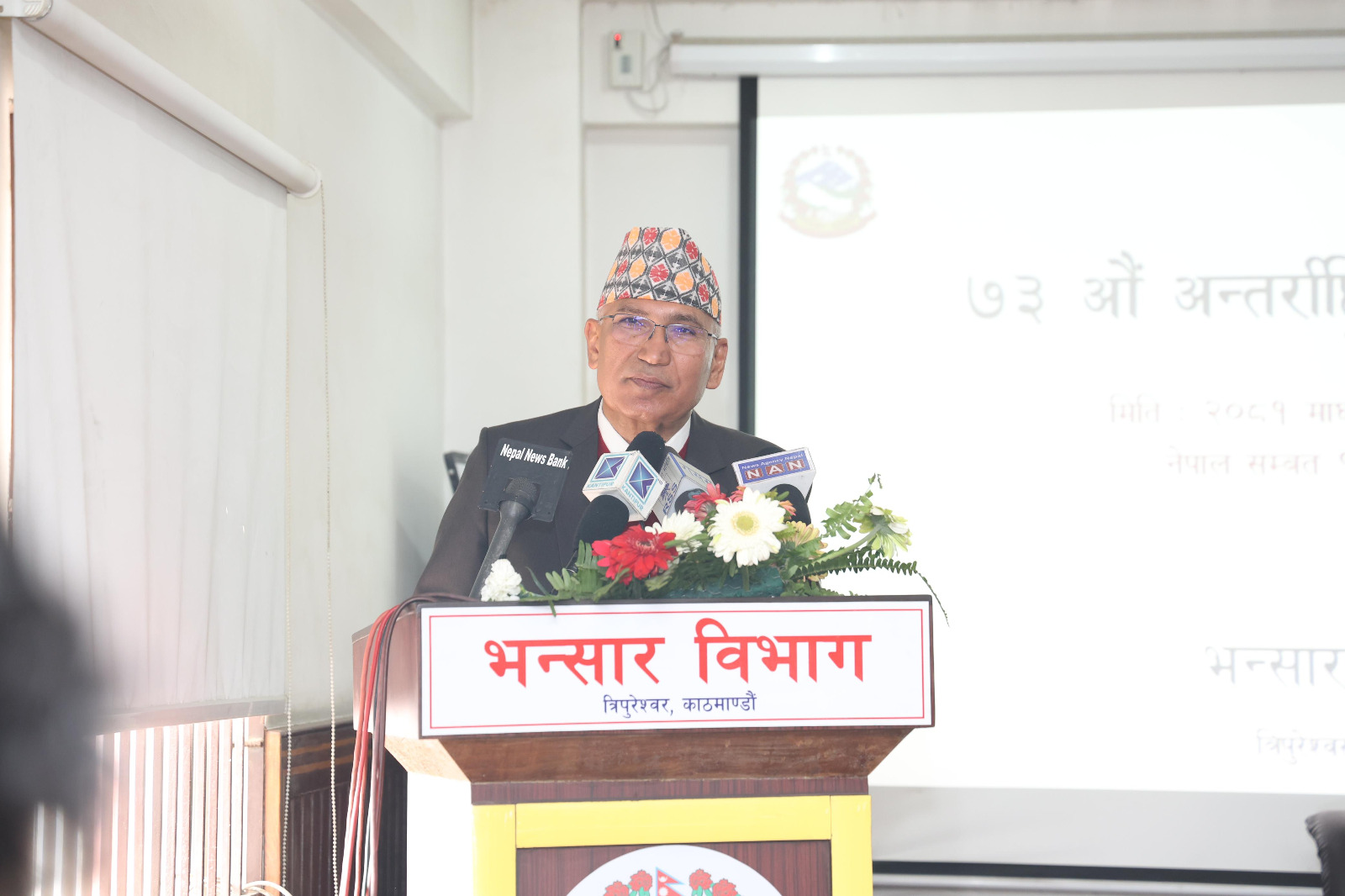Deputy Prime Minister and Finance Minister Bishnu Paudel said on Sunday, January 26, that despite some improvements in revenue collection compared to the previous fiscal year, the government has failed to meet its revenue target for the current fiscal year.
Addressing a program organized by the Department of Customs in Kathmandu to mark International Customs Day, Paudel urged customs and tax administration officials to work more efficiently amid mounting pressure to meet annual revenue goals.
Defending the government’s recent decision to introduce ordinances, Paudel said they aim to improve public service delivery, boost private sector confidence, and foster an investment-friendly environment.
While opposition parties have criticized the move as an attempt to bypass parliament and govern through ordinances, the private sector has welcomed the initiatives.
Paudel also highlighted the government's achievements, claiming it has alleviated public frustration and economic stagnation. “The government is focused on turning despair into hope and revitalizing the economy,” he said.
The Finance Minister emphasized the importance of collaboration between customs offices and security bodies to enhance operational efficiency.

(Deputy Prime Minister and Finance Minister Bishnu Paudel Photo: Sunil Sharma/NBA)
Use of Technology to Modernize Customs Administration
Revenue Secretary Dinesh Kumar Ghimire stated that the government prioritizes the use of technology to improve customs administration.
“To reduce discretionary power among employees, we must focus on increasing efficiency and adopting technology,” said Ghimire. He added that the ministry is exploring the use of blockchain technology for customs checks and studying ways to advance the integrated customs system and reference price list provisions.
Harisharan Pudasaini, Director General of the Customs Department, affirmed that efforts are ongoing to meet revenue targets. “We are focused on using advanced technology to streamline customs processes, facilitate trade, reduce costs, and provide international-standard services,” he said.
Private Sector's Call for Reforms
FNCCI President Chandra Dhakal stressed the need for a private-sector and customer-friendly customs administration. He suggested removing procedural bottlenecks during customs inspections and leveraging technology to streamline processes.
“Revenue collection will naturally improve with a vibrant economy,” Dhakal said, urging the government to prioritize clean and competitive business practices. He also noted that high customs rates have led to increased smuggling across open borders, adversely affecting revenue.
The private sector has suggested that the government modernize inspection equipment, reduce processing times, and eliminate the reference price book system.
Kamlesh Kumar Agrawal, President of the Nepal Chamber of Commerce, called for policy and procedural reforms in customs administration. He emphasized the need to align Nepal’s Harmonized System (HS) Code with international practices by adopting a 10-digit system and called for well-equipped quarantine labs at every customs office.
Shiv Kumar Agarwal, President of the Nepal Overseas Exporters and Importers Association, underscored the importance of government-private sector cooperation to facilitate trade. He also urged the government to address private-sector concerns in the Customs Bill under parliamentary consideration and requested representation in the Revenue Advisory Committee.
To mark International Customs Day, the Department of Customs implemented notification letters with QR codes and the EXIM code system, signaling a step toward digital transformation in customs operations.
RSS





you need to login before leave a comment
Write a Comment
Comments
No comments yet.